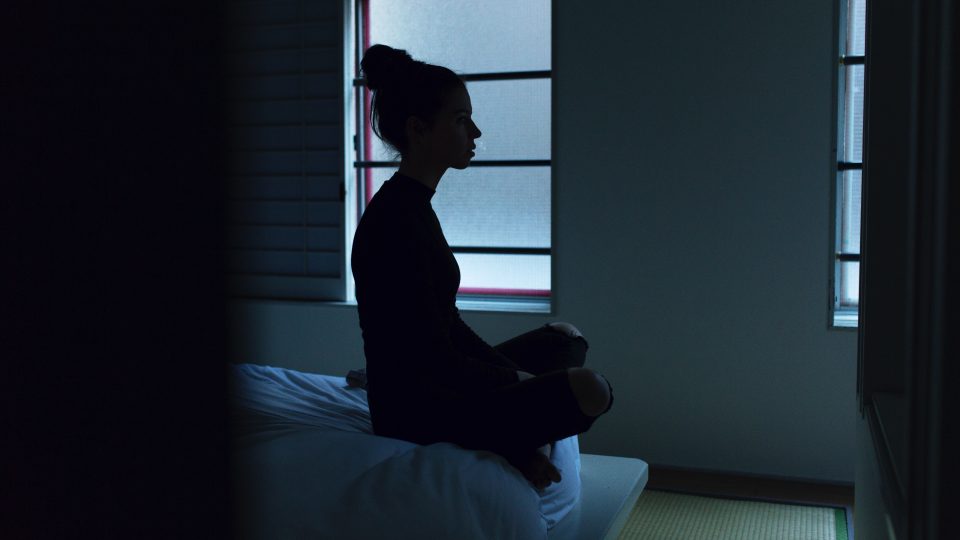Thank you to our first guest contributor, Sara Bailey.
After losing her husband Greg, Sara Bailey created TheWidow.net to support her fellow widows and widowers. She is also the author of the upcoming book Hope and Help After Loss: A Guide For Newly Widowed Parents.
It’s difficult to return to normal life after losing a loved one. There’s the grief of losing them; but beyond mourning, adjusting to life without that person can be just as painful. There’s still a new normal to be found. When you lose a loved one, trying to function in your daily life can be a chore. Even getting out of bed, eating and sleeping can be a challenge. If you’re unable to sleep well after the death of a loved one, try the following tips.
Nutrition
Finding the strength to eat can be an issue for some mourners, while others struggle with stress eating. What you eat has an effect on how you sleep. Starchy and sugary foods as well as skipping meals can cause cortisol levels to spike. Stick to low glycemic index foods to avoid raising cortisol levels, which can mess with your circadian rhythm (internal clock). Your nutritional intake will set the tone for your sleep quality.
Be Mindful of When You Eat
Food intake late in the day affects your quality of sleep, so avoid eating near bedtime. If you must stave off late-night hunger pains, skip foods that will keep you tossing and turning all night: high fat foods, protein, dairy and sugar, carbohydrates, diuretics (like celery), spicy foods and citrus fruits. Avoid consuming caffeine of any kind (coffee, sodas or chocolate) and alcohol. Both will keep you from having sound sleep.
Tech Gadgets
Since the trend here is what to avoid, one gadget that won’t help you sleep is your mobile device. The blue light from your phone or tablet mimics daylight, which disrupts your internal clock by tricking your brain into staying away. Turn off your phone or remove it from the bedroom an hour before bedtime.
Try a useful sleep gadget instead, like a noise-cancelling Smartpatch, an alarm clock/lamp, an anti-snoring device or a tracking device that emits alpha waves. Sleep trackers that offer no other benefit than tracking could be nothing more than a gimmick that makes you stress over your lack of sleep.
Exercise
When you’re in mourning, the thought of exercising is probably the last thing you want to do. However, the endorphins and positive feelings that come from exercise can help you deal with sadness. Self-care is important when you’re grieving and have a hard time sleeping. Nurture yourself by getting your body moving. Go for a long run in the morning, walk the dog around on the block on your lunch break, or head to a spin class after work. Do whatever makes you feel good.
Set the Tone for Slumber
There’s even more that you can do to improve your sleep. Routines matter. You can set your internal clock by going to bed at the same time every night. Develop a bedtime routine that involves relaxing your body and calming your mind. Read a book or listen to music to get you in a restful mood. Your routine can include mindful breathing, meditation, picturing a black space and relaxing your muscles from head to toe. Make sure your bedroom is not used for anything outside of bedroom activities. It should be a temple for resting, not for being productive or active.
Sleep Like Royalty
If promoting restful sleep means sleeping with blackout curtains, lavender linen spray, Egyptian cotton sheets, and the perfect room temperature, then so be it. It might even be time to buy a new mattress, especially if you’re finding it difficult to sleep in the same bed that you once shared with your late spouse. After the emotional stress you’ve been through, you deserve to find the most comfortable and peaceful sleep arrangement possible.
It takes a great deal of strength to recover from losing a spouse. Some widows and widowers feel as if they’ve lost a piece of themselves. Along with feelings of incompleteness, living in the home you shared together might feel too painful. How is restful sleep supposed to occur when loneliness, sadness, depression, or guilt have taken over? It takes time to heal from this life-changing event. With patience, support, and rest, you’ll find yourself again.
Photo Credit: Unsplash

